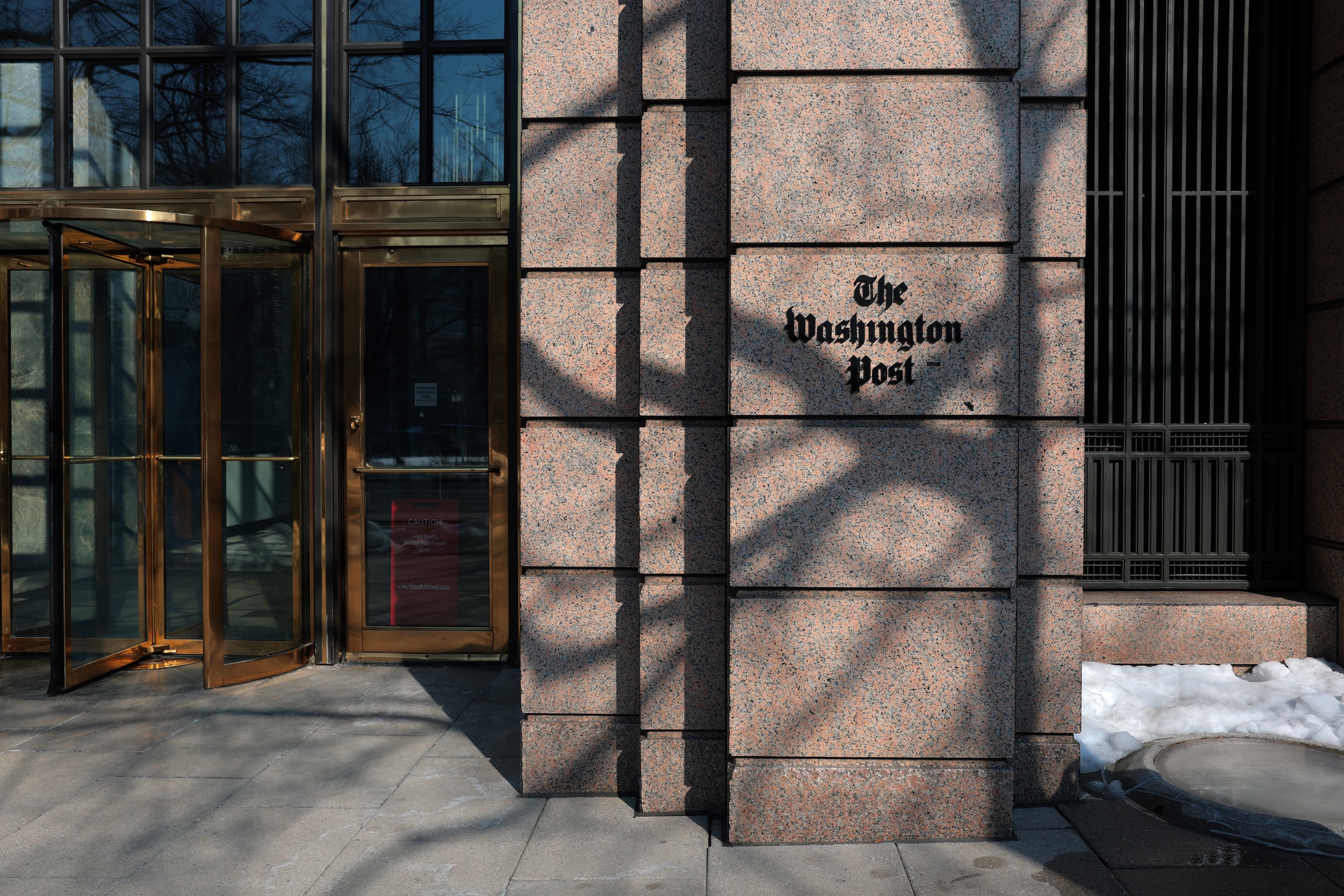Growing up in Florida, I have always maintained that the state as a whole should be thought of as America's id. Florida is the country's truest self, and wherever the nation is headed, it's likely that Florida was there first and rightfully mocked for it in the moment. The hard right turn into conspiracy and spite, the dismantling of education and social services, an economy built completely out of fraud and scamming—that's us, and has been us. If you were to visit Miami right now, you would see an entire city seemingly catered to fraud: credit card scams, fake medical practices, and, of course, crypto. So, so much crypto.
On Wednesday, the president of the United States backed away from some of his more extravagant tariff threats and checked down to smaller, still very dangerous tariffs—for every nation except China, that is, with which we now seem to be in full-blown trade war. While Trump claims that the tariff experiment was merely some sort of test, and his lackeys have framed it as an act of dealcraft beyond mortal comprehension, those explanations land with the same amount of sincerity as a Drake diss record. It sure looks like Trump saw the economy tanking and decided to kill two birds with one stone, readjusting the S&P and also allowing his rich friends who had shorted the economy to make a lot of money off its rebound. That's very clearly insider trading, and will also very clearly not be dealt with in any meaningful way, because consequences don't exist if you have enough money and power. Florida was early to that one, too.
Scamming is right next to sex work as the oldest profession. The first reported case of fraud supposedly dates back to 300 BCE, when two Greek sea merchants named Hegestratos and Zenothemis devised a plan to get rich by taking out an insurance policy on their ship and cargo and then devising a plan to sink the ship and pocket the insurance. While those two were caught in the act, that innovation laid the foundation for one of the more common scams throughout history, a true classic that is still popular today. And, of course, there's Charles Ponzi; the scheme named after him may or may not do a better job of explaining the modern U.S. economy than anything else. Since the rise of the internet and the fall of the housing market in 2008, scamming has skyrocketed in prominence in American life, with corporations and individual proprietors both jumping in. If you're reading this, there's a good chance you've been the victim or the attempted victim of a scam—and if you aren't, more than likely you are the one scamming.
The arrival of cryptocurrency was both a wet dream and a practical necessity for the fraud gods. An unregulated, shady money marketplace that has the rubber stamp of both the tech industry and much of Wall Street. It is no coincidence that our president, who is both extremely scam-friendly and a lifelong scammer in his own right, used his inauguration as the platform to debut his own crypto memecoin and generate millions of dollars for himself and his businesses. That's the sort of thing that a president is not supposed to do, of course, but it was also an obvious sign of things to come, and a message that his administration was going to make a fire sale out of America. A memecoin with the literal president's name on it signifies a number of things, all of them bad, but it is an unmistakable signal that the scammers have breached the gates, and will get to work selling whatever they can get their hands on at the expense of everyone else that doesn't already have a million dollars to their name.
Trump has been a premier scammer throughout his history. His Trump University was a huge scam that paved the way for other celebrity school scams. He's no stranger to being sued for fraud, which has happened again and again. His enabling of Elon Musk and DOGE, under the guise of finding fraud and waste in the government, can more accurately be understood as unleashing fellow fraudsters on the government from within, where they can and will do whatever is in their own interests, at everyone else's expense. His bluster about imposing tariffs on "bad actors" in global trade is either him trying to disguise the fact that American businesses and consumers are the ones being taxed or him just not knowing what tariffs actually are. His entire administration is full of disgraced TV personalities and snake oil salesmen like RFK Jr., Pete Hegseth, and Kash Patel, who couldn't even be bothered to actually show up to work.
Maybe it's the Floridian in me, but I've always been fascinated by scammers. It is the most American crime you can commit, although it exists all over the world and has existed throughout human history. There is something about our hyper-capitalistic culture that makes scamming not just highly accessible and easy, but tacitly justifiable. People are kind of always dabbling in it to some extent: whether staging things on Instagram in order to look rich and successful, lying on resumés about college or job experiences, misrepresenting themselves on dating apps, overcharging for items in the marketplace. The scammer just pushes these things further, taking from the vulnerable to give to themselves. But what makes scammers fascinating to me is how they expose something inherently flawed about our money- and status-obsessed "hustle hard" culture, which is the fact that there can never be a stopping point. There's never "enough," because the rush of the crime and the identity-boosting effects of Having More becomes its own monster. It's one that a scammer will have to keep feeding, to the detriment of society but ultimately also of themselves.
It's also the Floridian in me that I know a hustler when I see one, and Trump is kind of the ideal for a scammer. He's a guy with enough charisma to convince people that his obvious bullshit is sincere and real—part cult leader, part boss, part daddy that his supporters want to make proud. People make the mistake of thinking that exposing his lies and hypocrisy and broken promises is how they'll take him down, but the people that vote for him aren't doing that just because they believe his lies. They may even know they're lies, but they still want to believe them. They love the fantasy Trump is selling, which is just as much a business tactic as the actual item being sold. It's the fantasy of some #RETVRN to American (read: white) exceptionalism that can only happen at the hands of a strongman who will drive the car while we sleep in the backseat. And it's while the passengers sleep that Trump and his loyalists help themselves to all the money and resources they can.
It seems pretty clear that Trump's end goal is to further enrich himself and a few powerful members of his circle while simultaneously destroying the social safety net. It's not just that he needs to win; everyone else also has to lose. The result of this will be a golden age of scamming, fraud, and crime that no amount of dystopian movies could ever have grasped; it wouldn't make for a very interesting plot, because without any meaningful laws, the line between scamming and business simply disappears. The richest believe they have some exit ramp, to Mars or just to some compound. Maybe they really think their A.I. overlords will suck their consciousness into the supercomputer—a real thing a class of tech billionaires really believe—and they will live forever, far from everyone else. The select few will strip this country down to its nuts and bolts, and leave the rest of us with nothing. And the eggs will still be expensive.






